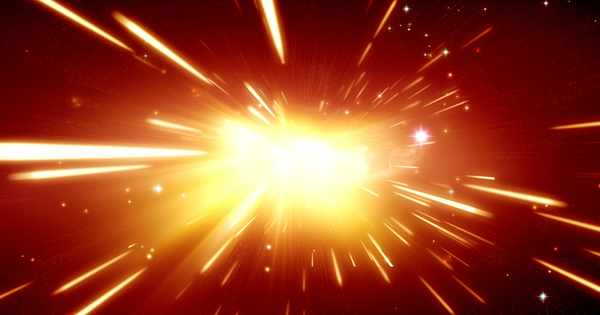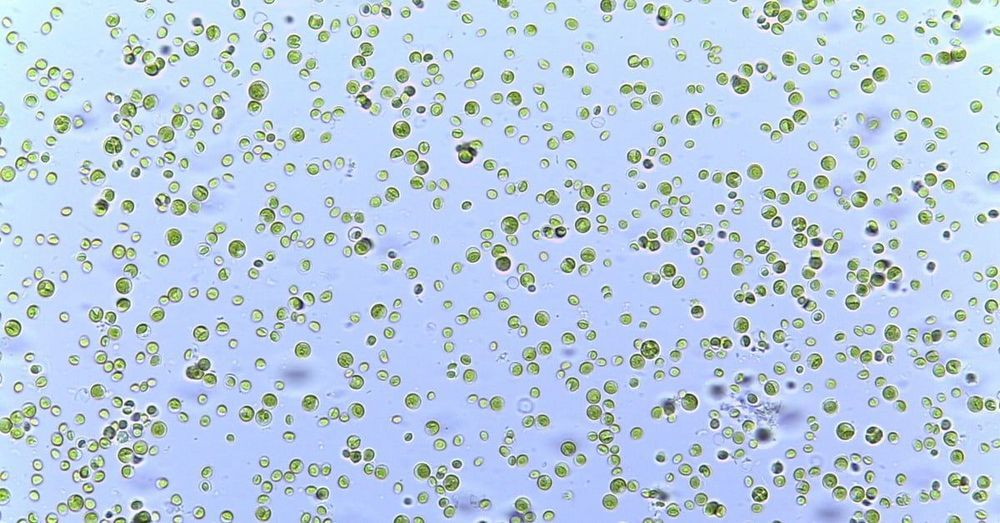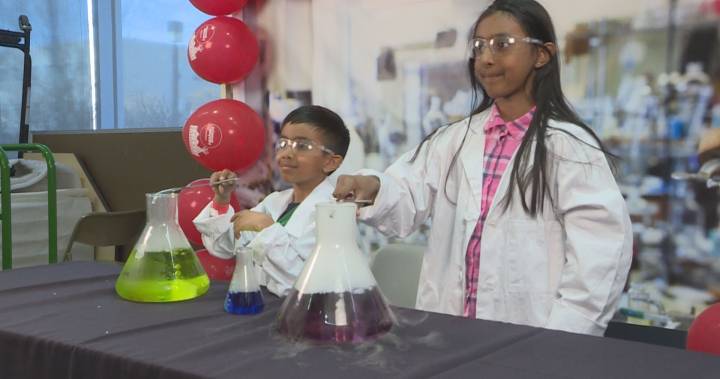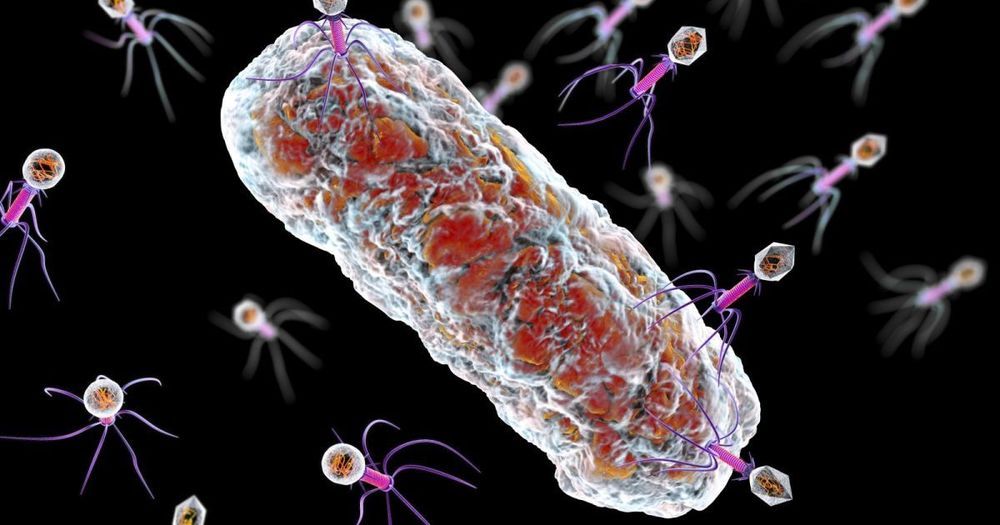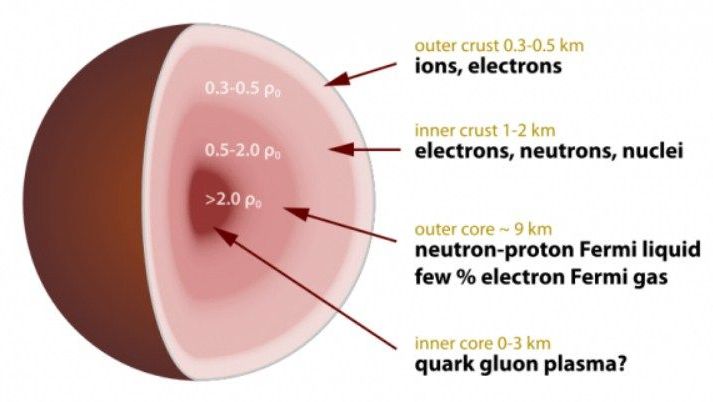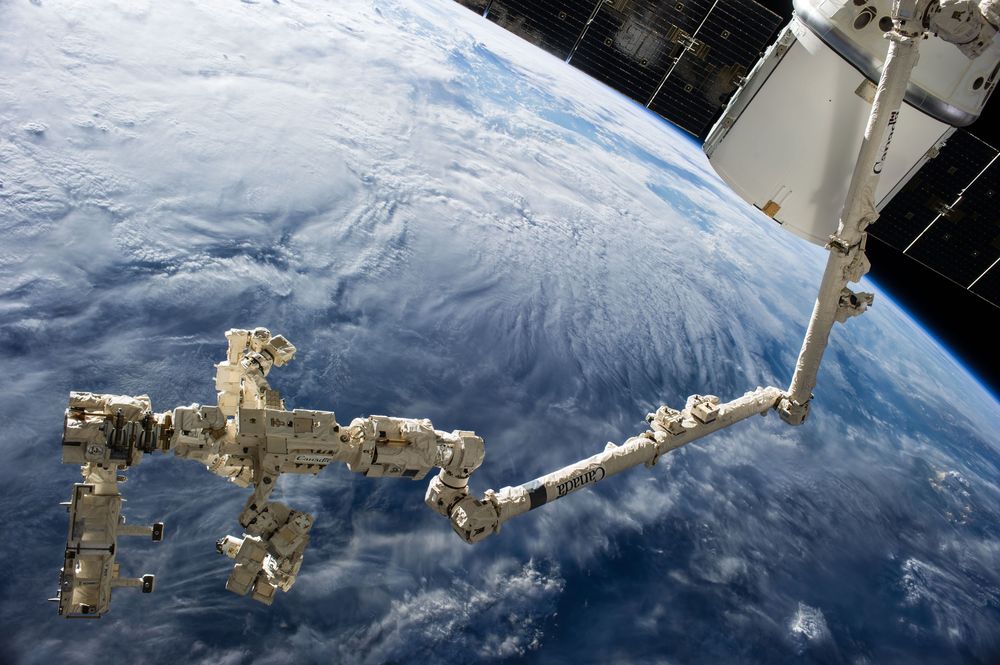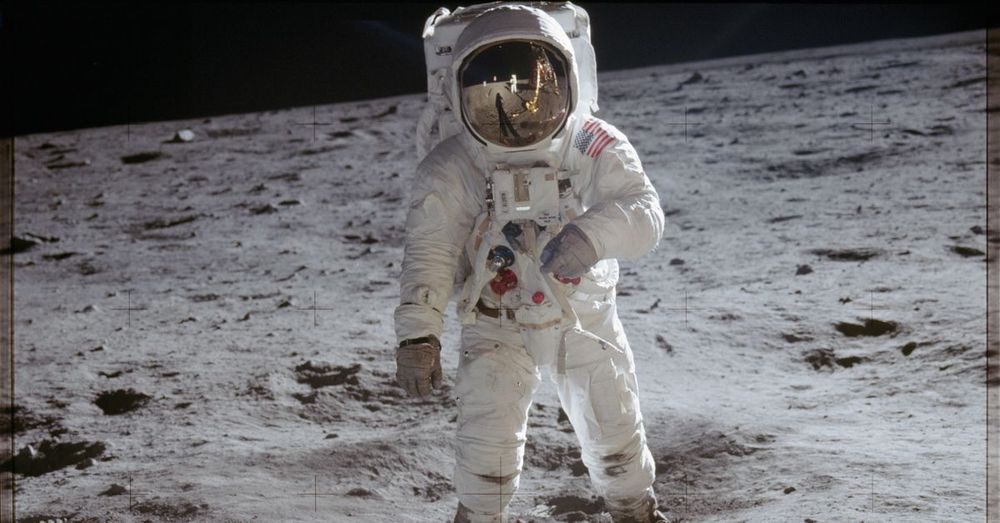Page 8830
May 12, 2019
Watch Jeff Bezos Unveil the Blue Moon Lander
Posted by Genevieve Klien in category: space travel
Amazon’s Jeff Bezos steps up the space race. His private space company, Blue Origin, says the Blue Moon lander will be able to carry a small rover to the moon, and hopefully astronauts. (Source: Bloomberg)
-
-
 01:20.
01:20.
-
May 12, 2019
If we made a powerful enough telescope, would we theoretically be able to see the light from the Big Bang?
Posted by Genevieve Klien in categories: cosmology, particle physics
Light particles after the Big Bang eventually formed the ‘cosmic microwave background’ which astronomers can see all aglow.
May 12, 2019
Microalgae Could Be Key to an Efficient Space Life Support System
Posted by Genevieve Klien in categories: food, space
Making sure astronauts on space missions have sufficient supplies is a major challenge. Not only does food need to be sent up to locations like the International Space Station (ISS) in expensive resupply launches, but a further problem is making sure that astronauts have enough water and oxygen for their needs as well.
It’s also hard to ensure that the astronauts are getting sufficient nutrition from their diet. Ideally the astronauts would be able to grow their own food on the space station, but plants react strangely to microgravity so it’s hard to grow fruits and vegetables successfully.
The current life support systems used in space use chemical reactions to create water and oxygen and to recycle carbon dioxide. But a new system could use algae to produce oxygen, water, and even food.
Continue reading “Microalgae Could Be Key to an Efficient Space Life Support System” »
May 12, 2019
University of Manitoba ‘Science Rendezvous’ tops 4,000 in attendance
Posted by Genevieve Klien in category: science
On Saturday, over 70 different booths were set up at the University of Manitoba’s campus, with each one showcasing a different aspect of science.
WATCH: Thousands flocked to the University of Manitoba to take in over 70 different hands on science demonstrations at this year’s “Science Rendezvous.” Marek Tkach reports.
For the 12th year in a row, ‘Science Rendezvous’ was organized and executed by over 700 U of M students.
Continue reading “University of Manitoba ‘Science Rendezvous’ tops 4,000 in attendance” »
May 12, 2019
Gene-modified viruses rescue patient from drug-resistant ‘superbug’
Posted by Genevieve Klien in category: biotech/medical
Scientists have modified the genes of viruses to nearly wipe out a drug-resistant bacteria.
May 12, 2019
Can We Now Predict When A Neutron Star Will Give Birth To A Black Hole?
Posted by Genevieve Klien in category: alien life
A neutron star is perhaps one of the most awe-inspiring and mysterious things in the Universe. Composed almost entirely of neutrons with no net electrical charge, they are the final phase in the life-cycle of a giant star, born of the fiery explosions known as supernovae. They are also the densest known objects in the universe, a fact which often results in them becoming a black hole if they undergo a change in masspace and science black hole is in space science
For some time, astronomers have been confounded by this process, never knowing where or when a neutron star might make this final transformation. But thanks to a recent study by a team of researchers from Goethe University in Frankfurt, Germany, it may now be possible to determine the absolute maximum mass that is required for a neutron star to collapse, giving birth to a new black hole. space and science black hole is in space science
As with everything else relating to neutron stars, the process by which they become black holes has long been a source of fascination and bewilderment for astronomers. As the densest of all objects in the known universe, their mass cannot grow without bound – meaning that any increase in mass will also cause an increase in their density. space and science black hole is in space science.
Continue reading “Can We Now Predict When A Neutron Star Will Give Birth To A Black Hole?” »
May 12, 2019
How MCC Used Robotics to Successfully Restore Full Power for Station
Posted by Genevieve Klien in categories: robotics/AI, space, transportation
Robotics ground controllers in NASA’s Mission Control Center at the agency’s Johnson Space Center in Houston successfully replaced a failed Main Bus Switching Unit (MBSU) on the International Space Station with a spare using robotic operations on Thursday, May 2. The operation to replace the failed unit was conducted using the station’s Canadarm2 and Dextre, both part of Canada’s contribution to the International Space Station.
Using complex robotic work to perform critical maintenance allows astronauts to spend more time working on scientific experiments and helps develop better technologies and procedures for future human and robotic exploration beyond low-Earth orbit.
“Developing new robotic systems is extremely important to get our astronauts back to the Moon by 2024,” Robotics Operations Systems Officer Mike Ferullo said. “The techniques and methods that we are developing with Dextre and Canadarm2 are directly applicable to future missions, and the construction and repair of any Moon-based mission will be done with robotics wherever possible. It’s an extremely exciting time to be involved in space robotics.
Continue reading “How MCC Used Robotics to Successfully Restore Full Power for Station” »
How can we find an ocean on an exoplanet? Will we be able to find signatures of oceans on Earth-like planets in the coming decades?


